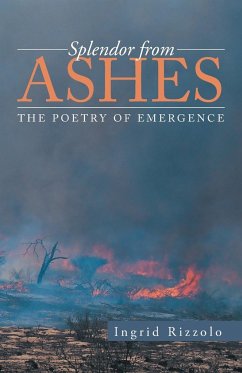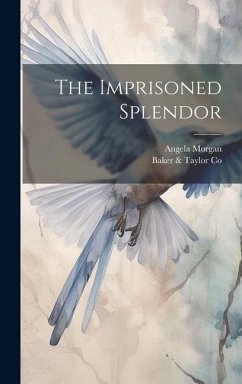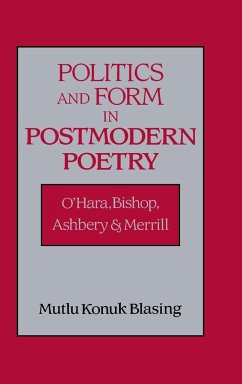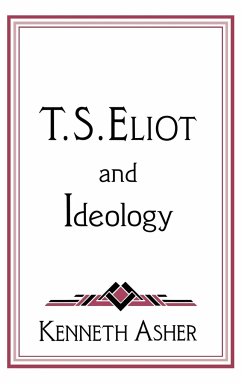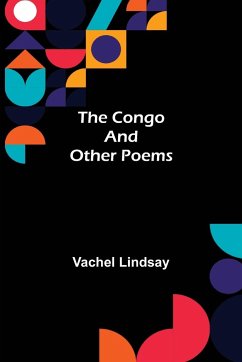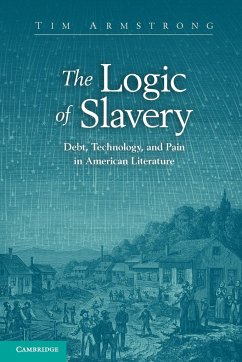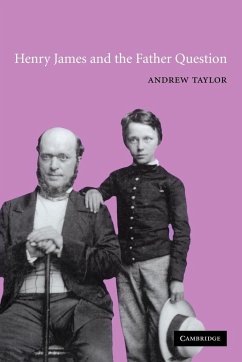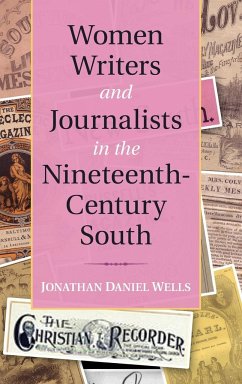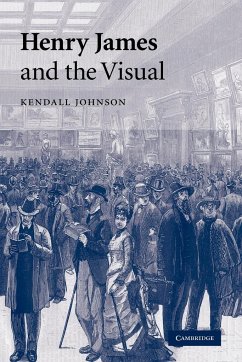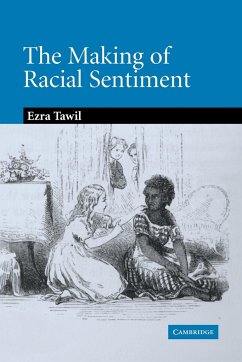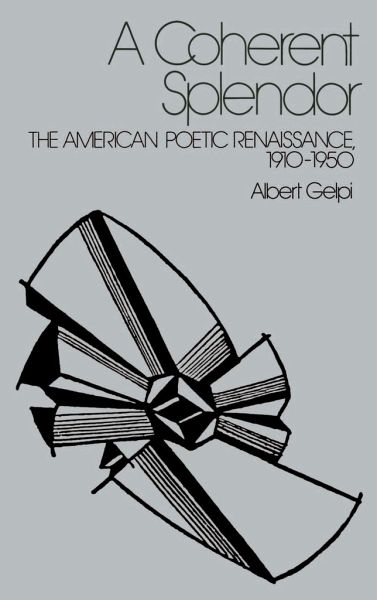
A Coherent Splendor
The American Poetic Renaissance, 1910 1950

PAYBACK Punkte
68 °P sammeln!
In this book Albert Gelpi traces the emergence of American Modernist poetry as a reaction to, and outgrowth of, the Romantic ideology of the nineteenth century. He focuses on the remarkable generation of poets who came to maturity in the years of the First World War and whose works constitute the principal body of poetic Modernism in English. Gelpi argues that the essential dialectic in Modernism extends and reconstitutes issues central to Romanticism. This is expressed in the interaction between two important strains in Modernism: the Symbolist exemplified in Wallace Stevens, T. S. Eliot, All...
In this book Albert Gelpi traces the emergence of American Modernist poetry as a reaction to, and outgrowth of, the Romantic ideology of the nineteenth century. He focuses on the remarkable generation of poets who came to maturity in the years of the First World War and whose works constitute the principal body of poetic Modernism in English. Gelpi argues that the essential dialectic in Modernism extends and reconstitutes issues central to Romanticism. This is expressed in the interaction between two important strains in Modernism: the Symbolist exemplified in Wallace Stevens, T. S. Eliot, Allan Tate, and Hart Crane; and the Imagist, exemplified in Ezra Pound, H. D. and William Carlos Williams.
Table of contents:
Introduction: the Janus-face of Romanticism and Modernism; 1. Robert Frost and John Crowe Ransom: Diptych of Ironists, the Woodsman and the Chevalier; 2. Wallace Stevens: World as Mundo, Mundo as world; 3. T. S. Eliot: The lady between the yew trees; 4. Ezra Pound: Between Kung and Eleusis; 5. H. D.: Helen in Bethlehem, Hilda in Egypt; 6. William Carlos Williams: Mother-Son and Paterson; 7. Allen Tate and Hart Crane: Diptych with Demons and Angels Coda; Yvor Winters and Robinson Jeffers: The Janus-face of anti-modernism.
Professor Gelpi traces the emergence of American Modernist poetry as a reaction to, and outgrowth of, the Romantic ideology of the nineteenth century. He focuses on the generation of poets who came to maturity in the years of the First World War and whose works constitute the principal body of poetic modernism in English.
Table of contents:
Introduction: the Janus-face of Romanticism and Modernism; 1. Robert Frost and John Crowe Ransom: Diptych of Ironists, the Woodsman and the Chevalier; 2. Wallace Stevens: World as Mundo, Mundo as world; 3. T. S. Eliot: The lady between the yew trees; 4. Ezra Pound: Between Kung and Eleusis; 5. H. D.: Helen in Bethlehem, Hilda in Egypt; 6. William Carlos Williams: Mother-Son and Paterson; 7. Allen Tate and Hart Crane: Diptych with Demons and Angels Coda; Yvor Winters and Robinson Jeffers: The Janus-face of anti-modernism.
Professor Gelpi traces the emergence of American Modernist poetry as a reaction to, and outgrowth of, the Romantic ideology of the nineteenth century. He focuses on the generation of poets who came to maturity in the years of the First World War and whose works constitute the principal body of poetic modernism in English.





